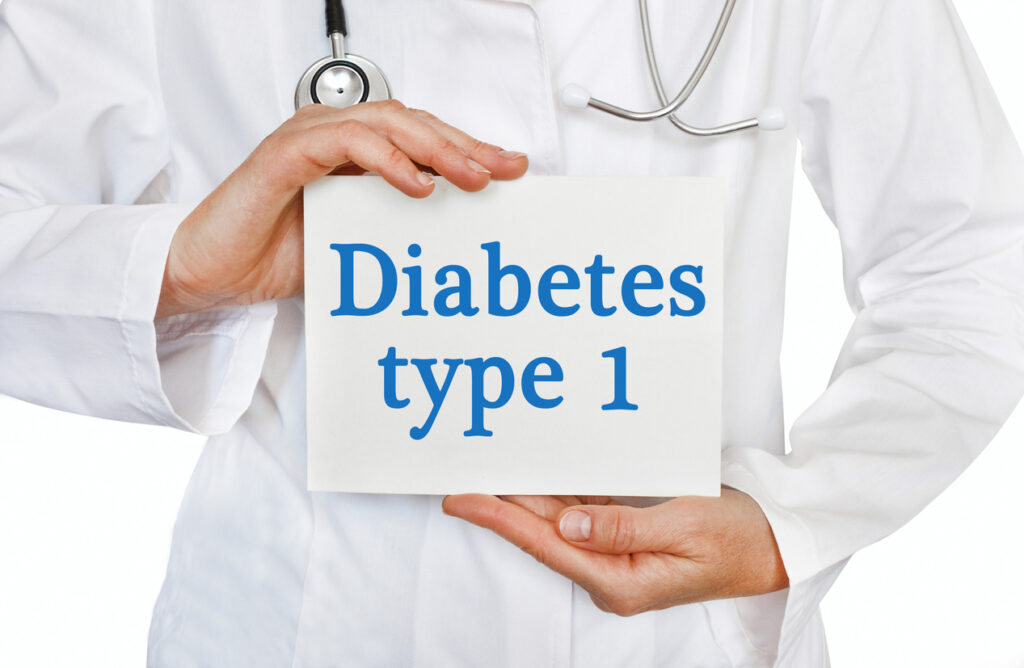Ketogenic Diet and Type 1 diabetes

What is the normal treatment of level 1 diabetes?
The treatment is the daily use of basal insulin, a delayed-release form of insulin that is needed to cover the body’s own production of glucose by the liver, a process called gluconeogenesis. Additionally, as traditional dietary recommendations do not restrict carbohydrates, the intake should be compensated by an extra dosage of insulin. In other words, in addition to basal insulin, patients need bolus insulin after meals to cover the amount of carbohydrates and protein consumed [1].
Bolus insulin application gives the patient the possibility of consuming anything, from sweets to pies, ice cream, cakes, and pizza. It apparently seems like a liberation but the application of insulin at higher dosages is not risk free. Decades of patient monitoring and research have shown that the more insulin a diabetic takes, the more prone to heart disease, and metabolic complications he might be.
One of the biggest nutrition myths is that type 1 diabetics must consume and count carbohydrates. But, recent studies demonstrated that following a ketogenic diet can have a positive impact on patients with type 1 diabetes mellitus. Besides, when there is a large consumption of carbohydrates and hyperglycemia, the risk of ketoacidosis is greater.
What is ketoacidosis?
Ketoacidosis is a metabolic state associated with pathologically high serum and urine concentrations of ketone bodies. Some of the factors that can precipitate the development of extreme hyperglycemia and subsequent ketoacidosis are infection, stress, non-adherence to insulin therapy, acute major illnesses like myocardial infarction, sepsis, and the use of certain medications, such as glucocorticoids or atypical antipsychotic agents which have the potential to affect carbohydrate metabolism [2].
In ketoacidosis high levels of glucose in plasma (above 240 mg/dL) and ketone bodies (often above 10 mmol/L to 20 mmol/L), in addition to blood pH below 7.3 are found. This medical emergency is much more common if the patient has an unrestricted consumption of carbohydrates.
If high glucose levels are detrimental, one other approach would be a diet restricted in carbohydrates. A few studies have reported benefits of the ketogenic diet for patients with type 1 diabetes. The goal of this approach is to avoid hyperglycemia, decrease the need of additional insulin, and the risk of metabolic diseases.
What is the ketogenic diet?
The ketogenic diet is a reversal of the current food pyramid, where instead of a diet rich in carbohydrates, it is high in fat. The resulting carbohydrate restriction lowers blood glucose levels, and the need of insulin. Once fats start to be utilized as the primary fuel source in the liver, the production of ketone bodies begins, a process known as ketogenesis. The three major ketone bodies are acetone, acetoacetate, and β-hydroxybutyrate. They can be used as a source of energy by all cells that contain mitochondria, including the brain and muscle [3]

Source of the image: Dowis, & Banga, 2021
The goal of the ketogenic diet is to avoid ketoacidosis and enter nutritional ketosis, a state in which blood glucose is below 90 mg/dL and plasma ketone bodies do not usually exceed 3 mmol/L. Most professionals work with a safety margin between 0.6 and 1.5 mmol/L. Patients must monitor blood glucose and ketone body levels daily to guarantee the safety of this dietary metabolic approach.
Get to know Yvonne
I recently met nutritionist Yvonne Reuter in Switzerland, a type 1 diabetic who follows the ketogenic diet. In this interview Yvonne talks about her experience and why she recommends the ketogenic diet to her patients:
This dietary modification helps to decrease blood glucose variability, HbA1c levels, and the amount of insulin required with every meal, improving patients’ quality of life. Yvonne and other researchers are of the opinion that the ketogenic diet is safer than consuming carbohydrates and applying high doses of insulin. They emphasize that the patient must be supervised by a team of endocrinologists and nutritionists for adjustments of diet and medication, as needed.
Bibliography:
[1] Gardemann, C., Knowles, S., & Marquardt, T. (2023). Managing type 1 diabetes mellitus with a ketogenic diet. Endocrinology, Diabetes & Metabolism Case Reports, 2023(3), 23-0008. Retrieved Nov 3, 2023, from https://doi.org/10.1530/EDM-23-0008
[2] Ghimire P, Dhamoon AS. Ketoacidosis. [Updated 2023 Aug 8]. In: StatPearls [Internet]. Treasure Island (FL): StatPearls Publishing; 2023 Jan-. Available from: https://www.ncbi.nlm.nih.gov/books/NBK534848/
[3] Dowis, K.; Banga, S. The Potential Health Benefits of the Ketogenic Diet: A Narrative Review. Nutrients 2021, 13, 1654. https://doi.org/10.3390/nu13051654


